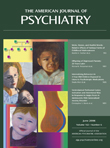Marc Galanter, M.D. is well known to psychiatrists for his work in substance abuse. While investigating the therapeutic benefits of the spiritual fellowship of Alcoholics Anonymous, he was encouraged to explore the nature and characteristics of cultic youth movements, which inspired him to pursue a nearly career-long interest in the interface of spirituality and mental health. Spirituality and the Healthy Mind is the culmination of Dr. Galanter’s many years of exploration—exploration that has taken him around the world. Through his journey, he has uncovered the good and not-so-good aspects of spirituality. Dr. Galanter’s key message to psychiatrists is that we should attend to the spiritual needs and the spiritual lives of our patients if we are to treat them comprehensively. Spirituality and the Healthy Mind is a “big” book, not so much in terms of length but in terms of scope. Dr. Galanter covers the waterfront. For this reason, the strength of his monograph, in my view, is found in the pearls scattered along the waterfront, not in the ordered and detailed inspection of the vast seascape.
Along with a closing epilogue, Spirituality and the Healthy Mind is divided into the following five sections: 1) What Is Spirituality?, 2) The Impact of Culture, 3) Varieties of Spiritual Experience, 4) Spiritual Recovery Movements, and 5) Therapy of a Different Kind (therapy ranging from shamans to Victor Frankl). Although Dr. Galanter does not present a precise definition of spirituality, he does reflect upon important characteristics, including a sense of renewal—critical to recovery—an orientation to values—no psychotherapy is entirely free of values, and a “relief effect” that may be derived from the cohesiveness of a spiritually oriented group. Next, he explores the apparent conflict between science and spirituality, contrasting groups such as the American Society of Addiction Medicine, which embraces the spiritual approaches of Alcoholics Anonymous, and the much more empirically oriented American Academy of Addiction Psychiatry. Dr. Galanter’s travels and discussions with therapists from around the world inform his review of Christian psychiatry (primarily limited to observations of the psychiatry section discussions of the Christian Medical Association at the American Psychiatric Association annual meetings), spirituality in India, liberal Islam, and hospital chaplains. He also includes a discussion on recovery movements, with special emphasis on alternative medicine and Alcoholics Anonymous. Dr. Galanter concludes by advocating a psychotherapeutic approach that not only relieves symptoms but also promotes the pursuit of a meaningful life, a goal that he believes can be achieved.
For those seeking a comprehensive, cogently argued, and carefully crafted treatise on spirituality and mental health, the book may be disappointing. For those who desire a lively and engaging introduction across a wide range of topics associated with the central theme, the book will likely be an informative and enjoyable read.

